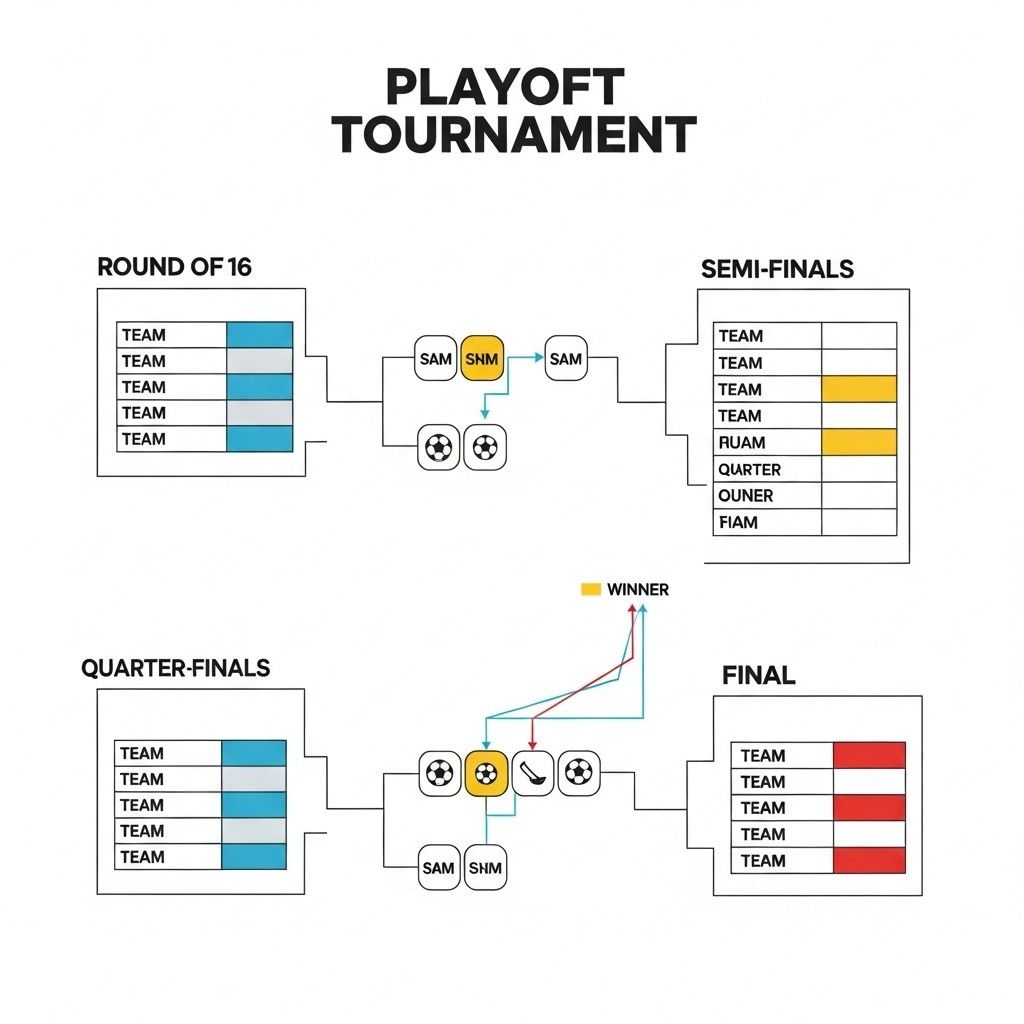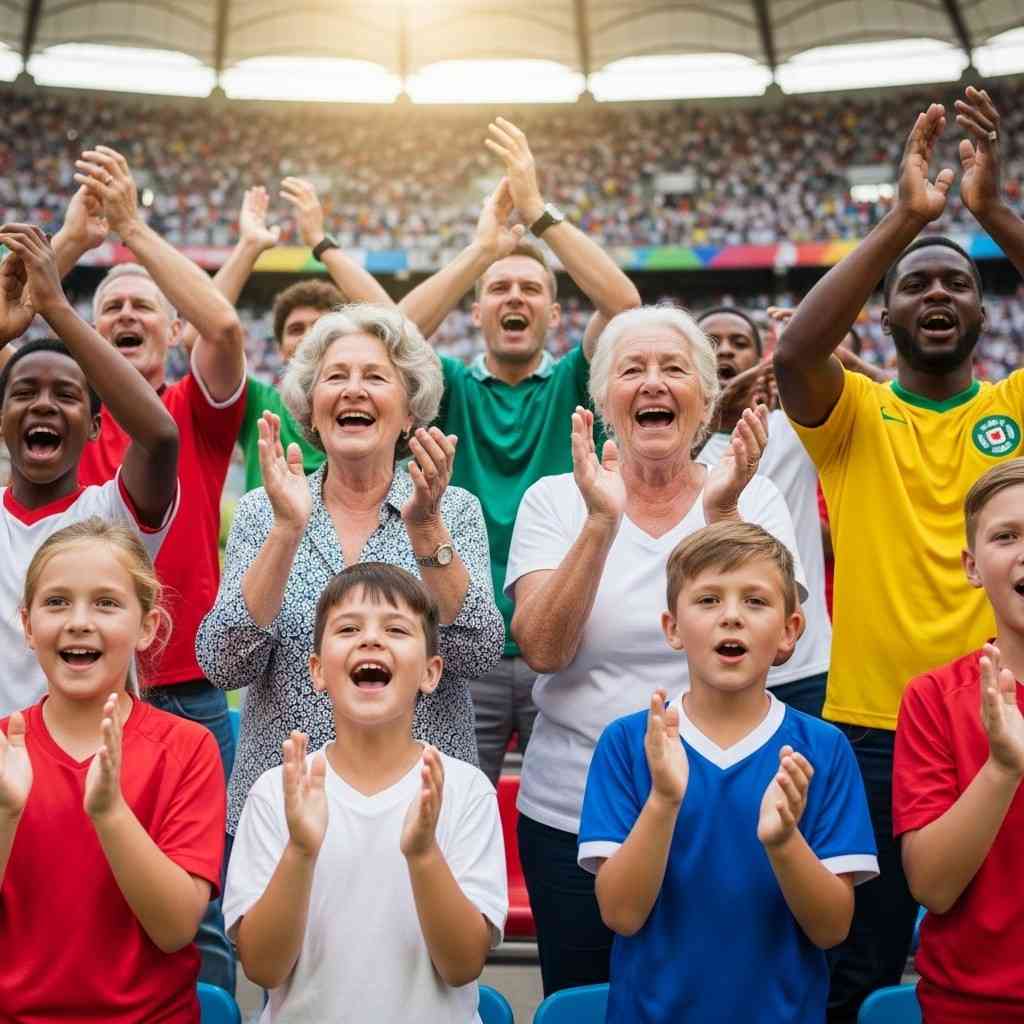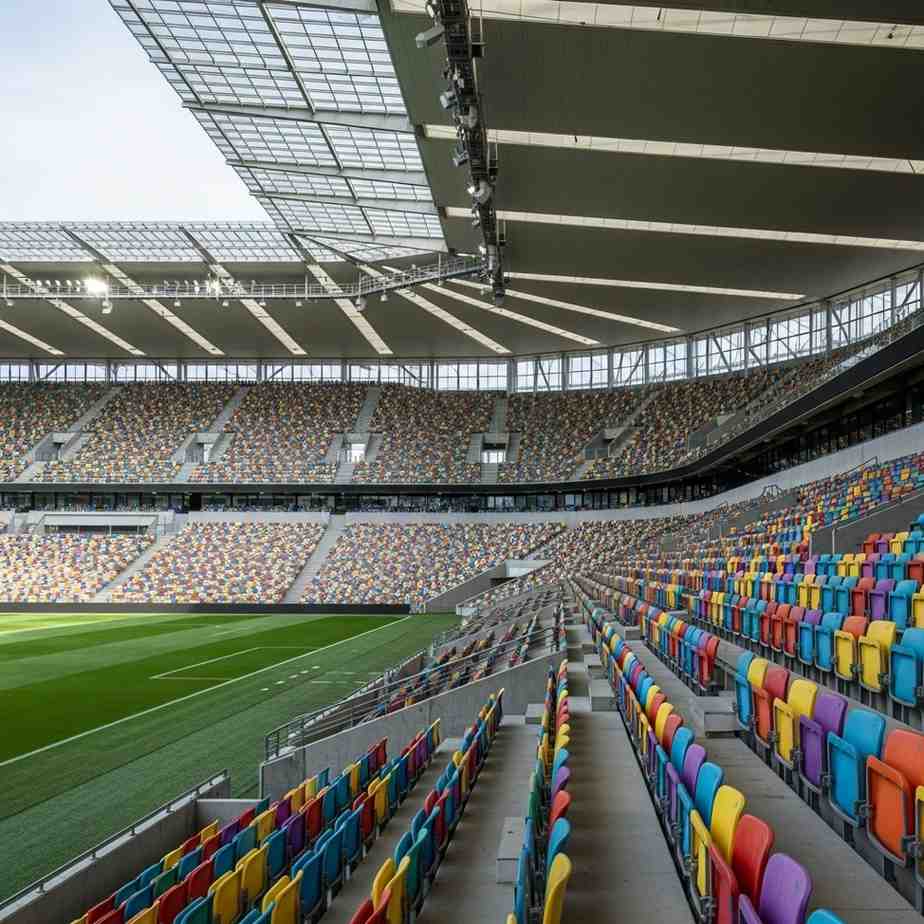Tournament Format Explanation

The Club World Championship 2025 introduces a thrilling new format designed to maximize competition and excitement. This expanded edition will feature 32 clubs, divided into a group stage followed by a direct knockout phase, ensuring every match carries significant weight. The structure is meticulously crafted to guarantee fair play and provide ample opportunities for all participating teams to showcase their prowess on the global stage. This innovative approach promises more high-stakes encounters and a dynamic progression through the tournament, keeping fans on the edge of their seats from start to finish. The integrity of the competition is paramount, and the format reflects a commitment to global football development.
Group Stage: Eight Groups of Four
The tournament begins with eight groups, each comprising four teams. Within each group, teams will compete in a single round-robin format, meaning each team plays every other team in their group once. The objective during this phase is to accumulate as many points as possible (3 for a win, 1 for a draw, 0 for a loss). The top two teams from each of the eight groups will then advance to the knockout phase. This initial stage is crucial for building momentum and establishing dominance, as teams vie for a coveted spot in the next round. The group stage provides a diverse set of matchups, allowing different footballing philosophies to clash and creating early narratives for the tournament. Expect fierce competition and tactical battles as teams aim to secure their progression, with every goal potentially making a difference.
Teams will be seeded for the draw, ensuring a balanced distribution of strength across the groups. This seeding process aims to prevent 'groups of death' while still ensuring competitive balance and challenging matchups. The group stage also provides an opportunity for lesser-known clubs to make a name for themselves by causing upsets against more established giants. Every match in the group stage is vital, as goal difference and head-to-head records could come into play to determine qualification in tightly contested groups. Fans can anticipate a flurry of goals and tactical masterclasses as teams navigate this initial hurdle, pushing their limits in pursuit of knockout glory. The atmosphere during these group matches is expected to be electric, fueled by passionate supporters.
Knockout Phase: The Road to Glory
Following the group stage, the sixteen qualified teams will enter a single-elimination knockout bracket. This phase begins with the Round of 16, progressing through the Quarter-finals, Semi-finals, and culminating in the Grand Final. There will be no third-place play-off match. Each knockout match is a do-or-die encounter, requiring teams to deliver their absolute best performance to advance. Extra time and penalty shootouts will be used to decide drawn matches in the knockout rounds, adding to the drama and intensity. This format ensures that only the most resilient and skilled teams will survive to contend for the ultimate title. The pressure intensifies with each round, making every goal and defensive stop critical. The knockout phase is where legends are made, and unforgettable moments are etched into footballing folklore. It's a true test of mental fortitude, tactical discipline, and individual brilliance, pushing teams to their absolute limits and showcasing the true spirit of competition.

Match Scheduling
The match schedule will be carefully planned to allow adequate rest periods between games for all teams, minimizing fatigue and maximizing performance. Matches will be spread across various venues within the host nation, ensuring broad geographic reach and accessibility for fans. Kick-off times will be staggered to accommodate global viewing audiences, making the tournament accessible to football enthusiasts worldwide. The comprehensive scheduling aims to provide an optimal experience for both players and fans, ensuring a seamless flow of high-quality football throughout the championship. Detailed schedules with dates, times, and venues will be released closer to the tournament. The logistics of managing 32 teams and numerous matches require meticulous planning, and the organizers are committed to delivering a world-class event that runs smoothly and efficiently. Every detail, from transportation to practice facilities, is being meticulously considered to ensure a superior experience for all.
Participating Teams (Qualified)

The Club World Championship 2025 brings together the best clubs from each of the six FIFA confederations, creating a truly global football spectacle. The allocation of berths ensures broad representation and a fair distribution of top talent from every corner of the world. While the final list of qualified teams is still being confirmed as continental competitions conclude, the following table provides a general overview of the allocated spots and some of the teams that have already secured their place, along with potential contenders. This diverse mix of teams promises a vibrant and unpredictable tournament, showcasing the unique strengths and styles of football from each continent. The competition will be a melting pot of footballing cultures and strategies.
Confederation Allocation & Qualified Teams:
| Confederation | Allocated Spots | Confirmed/Potential Qualified Teams |
|---|---|---|
| UEFA (Europe) | 12 | Real Madrid, Chelsea, Manchester City, Bayern Munich, PSG, Inter Milan, Benfica, Porto, Borussia Dortmund, Juventus, Atlético Madrid, (More to be confirmed based on rankings/champions) |
| CONMEBOL (South America) | 6 | Flamengo, Palmeiras, Fluminense, River Plate, Boca Juniors, (More to be confirmed based on champions/rankings) |
| AFC (Asia) | 4 | Al-Hilal, Urawa Red Diamonds, (Two more to be confirmed based on champions/rankings) |
| CAF (Africa) | 4 | Al Ahly, Wydad AC, (Two more to be confirmed based on champions/rankings) |
| CONCACAF (North, Central America & Caribbean) | 4 | Monterrey, Seattle Sounders FC, Club León, (One more to be confirmed based on champions/rankings) |
| OFC (Oceania) | 1 | Auckland City FC |
| Host Nation | 1 | (To be determined based on host country's top club) |
This diverse roster of teams guarantees a clash of footballing philosophies and a rich tapestry of styles. Fans can expect to see top European giants challenge the flair of South American powerhouses, the tactical discipline of Asian contenders, the athleticism of African champions, and the growing strength of North American and Oceanic representatives. Each team brings its own unique history, fan base, and aspirations, contributing to the rich narrative of the tournament. The blend of established champions and emerging forces promises an exhilarating competition. The anticipation of these global matchups is a key factor driving excitement for the tournament, offering unique perspectives on the beautiful game.
Host Cities & Stadiums (To Be Announced)

The selection of host cities and stadiums is a critical component of the Club World Championship 2025, ensuring world-class facilities for players and an exceptional experience for fans. While the official host nation and venues are yet to be announced, it is anticipated that the tournament will utilize a selection of premier stadiums with state-of-the-art infrastructure and significant capacities to accommodate the global interest. These venues will be chosen not only for their sporting capabilities but also for their ability to host a major international event, offering robust transportation links, accommodation options, and cultural attractions for visiting fans. The host cities will play a crucial role in delivering a memorable and successful championship, providing the backdrop for all the thrilling action. Each stadium will be meticulously prepared to meet international standards, ensuring optimal playing conditions and fan comfort, enhancing the overall spectacle of the tournament.
Potential host cities will likely boast a strong footballing culture, excellent hospitality services, and the logistical capacity to manage a tournament of this scale. Considerations include accessibility for international travel, security measures, and the overall fan experience. The chosen venues will not only host matches but also serve as focal points for fan zones, cultural events, and team training facilities. The atmosphere within these stadiums will be electric, fueled by passionate supporters from around the world. We will update this section immediately upon the official announcement of the host nation and its designated stadiums, providing details on capacities, locations, and unique features of each venue. Stay tuned for these vital updates as the countdown to the Club World Championship 2025 continues! The preparations behind the scenes are monumental, reflecting the global significance of this event.
